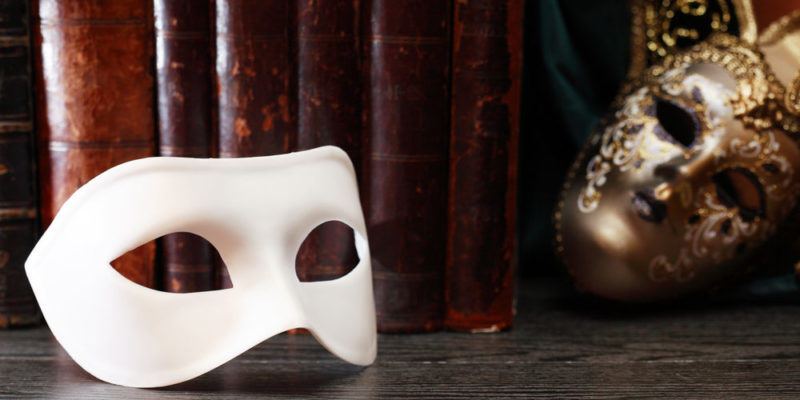We explain what a literary text is and what the language it uses is like. Also, what are its general characteristics and literary genres.
What are literary texts?
Literary texts are those that are part of one of the genres of Literature and artistic writing , in which the form given to the message is of vital importance, as much as its content. They are distinguished from other types of texts, in this sense, by their strictly aesthetic intentions.
As well as other forms of art , the great literary texts constitute part of the artistic and historical heritage of the different civilizations , since not only a specific reference is printed on them (a time, certain social, political conditions) but also a particular feeling and individual of the artist, whose subjectivity and sensibility produce the work of art.
Characteristics of literary texts :
Poetic Intent

Unlike other forms of text, literary writings offer an aesthetic experience to the reader : a reading from which comes a learning of a spiritual kind, an amazement at the operation of the text itself, instead of the acquisition of specific knowledge , as would happen, for example, with reading a newspaper or the instructions for using an appliance.
-
Subjectivity
The spirit of the age
At the same time, literary texts capture the so-called “spirit of the times”, which is what is called the collective feeling that characterizes a community or an entire civilization during a specific period. For example, existentialist novels captured the pessimism and depression following the two World Wars ( First and Second ) in the mid- 20th century .
-
Language
 The handling of language in literary texts is, at least, particular, different. A literary text can allow breaks with the grammatical norm (especially common in poetry) for aesthetic purposes, and in general terms, a use of language not as a tool to transmit information, but as a material to manufacture the work of art. The "style" of a writer is, in this sense, his particular and original way of using language.
The handling of language in literary texts is, at least, particular, different. A literary text can allow breaks with the grammatical norm (especially common in poetry) for aesthetic purposes, and in general terms, a use of language not as a tool to transmit information, but as a material to manufacture the work of art. The "style" of a writer is, in this sense, his particular and original way of using language.
Gratuity
The reading of literary texts is carried out for free, that is, freely, without specific objectives and without any use . Oscar Wilde, a famous British writer, said that art is "profoundly useless" since it does not fulfill any pragmatic purpose in the lives of its readers, other than spiritual enrichment or entertainment.
-
Fictionality
 Literary texts are mostly works of fiction (especially narrative). That is, they relate events that did not really happen , but rather come from the imagination and inventiveness of the author, who reworks reality according to his particular view of the world and his specific sensitivities.
Literary texts are mostly works of fiction (especially narrative). That is, they relate events that did not really happen , but rather come from the imagination and inventiveness of the author, who reworks reality according to his particular view of the world and his specific sensitivities.This is more complex to perceive in poetry and essays , since the author's subjectivities are not reflected in a story but in a description or an explanation, respectively.
Verisimilitude
Despite being fictional or imaginative in nature, literary texts are plausible, that is, believable . Its operation depends on a "suspension of disbelief pact" between the author and the reader, in which the latter agrees to read the text as if it were true, despite being aware that it is not. In exchange, the author promises to build it in such a way that the artifice is sustained until the last page.
-
Imitative Character
 Literary texts imitate reality, that is, they copy it, reformulate it, use it as raw material for the construction of the literary work. In that sense, literary texts are said to be "mimetic": they are representations, imaginations, versions of real experience.
Literary texts imitate reality, that is, they copy it, reformulate it, use it as raw material for the construction of the literary work. In that sense, literary texts are said to be "mimetic": they are representations, imaginations, versions of real experience.
Literary genres

There are specific forms of literary texts, which are distinguished from each other according to their general rules of operation, and which are:
- Narrative . Literary texts in which a story unfolds, in charge of the voice of a narrator. These stories contain characters and events that are more or less fictional, even fantastic, portrayed in an original and believable way.
- poetry . One of the most difficult genres to define, since it can take on a multiplicity of forms. It is a poetic description, through figurative or metaphorical language, of some relevant experience in the author's subjectivity.
- Dramaturgy. The writing of texts intended for a theatrical performance, by actors and on a given stage. They lack a narrator, despite representing stories as well.
-
Legitimation
In this sense, there are devices for legitimizing the works , that is, they choose which ones last and which ones are left aside, which ones are valuable for the sensibility of an era and which ones are not so much. Thus, it is often said that literature is a construction of a historical type.
The above content published at Collaborative Research Group is for informational and educational purposes only and has been developed by referring to reliable sources and recommendations from technology experts. We do not have any contact with official entities nor do we intend to replace the information that they emit.
She has pursued her studies in The United States, where she has graduated in Business and Economics and is currently finishing her Master studies in International Economics and Finance. Miss. Amputee is fluent in three languages: English, Spanish and Russian and has elementary knowledge of French and Italian. She love exploring how Collaborative Research Group can become the best tool to achieve the (necessary) educational change. .
Leave a reply
Your email address will not be published. Required fields are marked *Recent post

Sport: What Is It, Types, Risks, Features, Characteristics and Examples

Dogs: Emergence, Features, Characteristics, Feeding and Breeds

Story: Definition, Elements, Structure, Features and Characteristics

